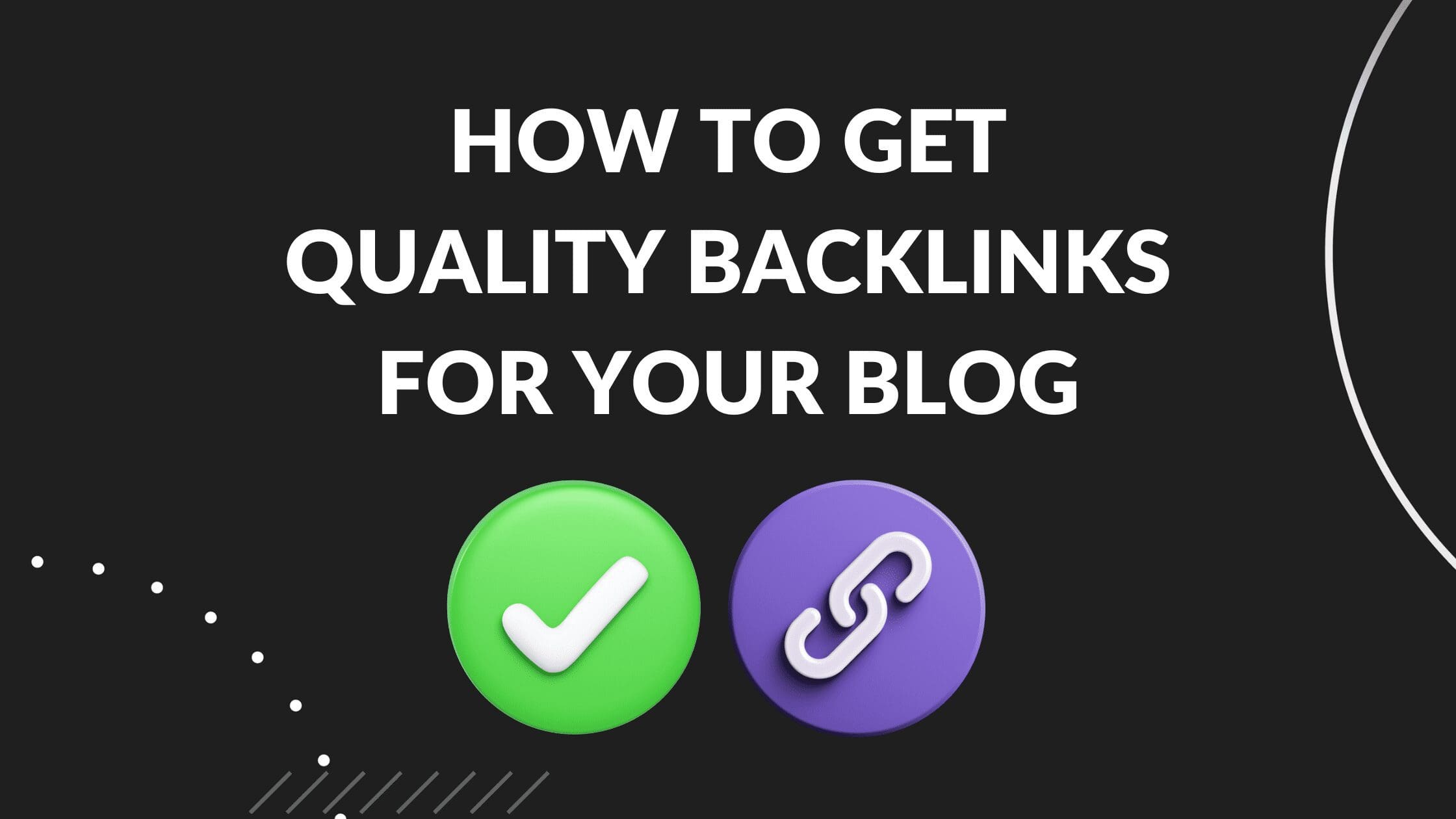Guest Blogging Strategy: How and Why You Should Do Guest Posts

Written by Casey Botticello
Disclosure: Some of the links below are affiliate links, meaning that at no additional cost to you, I will receive a commission if you click through and make a purchase. Read our full affiliate disclosure here.
Guest blogging. Heard of it? We bet you have. We also bet you’ve heard that “guest blogging is dead,” “guest blogging doesn’t work,” or “guest blogging is a waste of time.” Well, it’s not, it does, and it most certainly isn’t.
Over the years, guest blogging has been used for different reasons and with varying degrees of success. From employing guest blogging to build sneaky links that fool Google to making a quick buck on the side, guest blogging is often misunderstood, yet it has been on many bloggers’ ‘to think about’ lists for some time.
But guest blogging is back, and people are starting to take notice. Guest blogging can be a powerful tactic for growing your blog, boosting brand awareness, enhancing domain authority, and tapping into new markets – if done right. And for that, you need a guest blogging strategy.
Most bloggers never get around to guest blogging. Why? Because they don’t know where to start. Many content creators have thought about offering to write posts for other bloggers to publish, and almost every blog owner out there has received an email from a prospective guest blogger offering to write content for their blogs.
Instead of putting off making contact or sending that email to the junk folder, stop and consider this useful content strategy for a moment. In this article, we unpack guest blogging and check out what it can do for bloggers. We’ll explore the benefits of guest blogging, what they can deliver for your own blog ambitions, and look at how and why you should be doing guest blog posts.
What is Guest Blogging?

Guest blogging goes two ways. You can accept guest posts to be published on your blog, or you can write posts that will be published (with credit) on someone else’s blog. Many bloggers choose to do both, but if you want to increase your digital online blog or website footprint, it may be a good idea to start writing guest posts for other bloggers first.
Guest blogging roles and players
Guest bloggers looking to write guest blog posts for another website usually collaborate with others within their own industries or with people who operate in similar fields of expertise.
The goal of guest blogging is to benefit both the guest blogger and the website hosting it, with each party enjoying the value that guest posts bring. Guest bloggers have many reasons for wanting to contribute to other blogs and websites, while bloggers who host guest blogs can enjoy significant benefits of guest blogging for doing so.
Writing guest posts for other websites
Many businesses and companies use guest bloggers for publishing content they may not be able to create themselves or to elevate their online presence. Other websites and entities need the expertise and opinions of industry experts to add credibility and value to what they’re offering.
This is one of the reasons guest blogging is so valuable. It’s a flexible tactic that allows you to pick and choose where you’re looking to guest blog and maximize your return for doing so by ensuring your posts are reaching the right people.
Writing guest blogs for other bloggers
While it may seem strange to be providing other bloggers with content that will likely benefit them, there are many reasons why you would want to do so. As long as the other blog isn’t directly competing with your website or blog, it’s a win-win situation for everyone involved.
Guest blogging for someone else’s blog involves reaching out to the blog owner and offering to write content to be posted on their site. You will usually need to demonstrate that your content will provide value to them and ensure that all credit, terms & conditions, and guidelines are agreed upon beforehand.
How a Guest Blogging Strategy Can Help Your Blog

The main reason many websites choose to collaborate with guest bloggers is to drive traffic, increase their brand exposure and boost their own blog SEO with more content. But the same goes for the guest blogger. There are more benefits of guest blogging that enrich your site than you’d think.
Let’s look at how developing a guest blogging strategy positively affects your blog, benefiting your efforts and resulting in an uptick in traffic.
Increased brand exposure and reputation over a wider market
With your name on more posts published beyond your blog, you’re likely to gain better online recognition. Whether via links posted to social media, your guest blog posts published on other websites, or by getting people to share your content with others, the more they see your name, the increased likelihood of them remembering you. And more exposure means more traffic.
More social proof that you’re a topical authority
By allowing you to post your content on their website, others are already indicating that they recognize and respect your thoughts and opinions enough to publish them on their websites. This proves to the online community that you have some heightened degree of understanding around the topic – boosting that all-important topical authority.
Opportunities to develop mutually beneficial relationships with other bloggers
While this may seem like a marginal benefit, in fact, it’s a powerful one. By engaging with and collaborating with other bloggers and website owners, you’re growing your network, building important connections, and establishing your presence within the online community.
Gain experience and confidence around sub-topics you wouldn’t normally blog about
Guest posting allows you to write and publish content you may normally not be comfortable posting on your own blog or website. Whether because it is targeted at other niches out of your comfort zone or you’re concerned it doesn’t align with your brand, guest posting allows you to flex your creative muscles and test new waters.
And here’s the biggest benefit of them all:
You can include backlinks in your guest blog posts that redirect traffic back to your site
This can be a risky tactic. But, if done correctly, in line with the best practices and guidelines as listed by Google, you can strategically place backlinks that take readers back to your blog or website.
Building a quality backlink profile is one of the most potent advantages you can have on the SEO front and is essential to ranking well on SERPs.
Guest Blogging Strategy

The process of building an effective guest blogging strategy can be separated into four phases:
- Planning – where you examine if you’ve got the time and capacity to guest blog
- Research – which involves doing some exploring around your guest blogging stakeholders
- Outreach – while connecting with potential guest blog hosts, and
- Writing – along with submitting and promoting your guest blogging efforts.
Here, we’ve outlined these phases and included the steps and actions you’ll need to take before diving in and getting your guest blogging activities up and running.
Phase A – Planning
During this phase, you’ll need to look at yourself and whether you can actually take on the demands of guest blogging.
1. Find The Time You’ll Need to Guest Blog

Kick things off by looking at your availability and schedule. The last thing you want is to make a commitment to your partners only to drop the ball because you just don’t have the time to get around to drafting your guest blog content. These productivity tools for bloggers are helpful allies here.
2. Think About the Impact on Your Blog or Website

This step includes considering the benefits of guest blogging your blog will enjoy once you start doing so. We’ve already discussed many of these earlier in this article, so pay attention to how much of a boost your blog or website stands to receive.
3. Outline Your Guest Blogging Goals and Objectives

Make a list of what you hope to achieve from doing guest blogging. Do you want more traffic, to gain better online authority, or to tap into new markets? Or are you interested in boosting your brand exposure and developing backlinks, or are you trying to build a blog community? List your goals clearly and be realistic.
Phase B – Research
Next, you’ll need to do a little research on the guest blogging landscape. Take your goals and objectives and use them as target points when investigating the guest blogging opportunities and topics with the most potential.
4. Audience Research

Explore the different niches, markets, and audience sectors you’re most interested in reaching. Identifying and validating the right niches is critical to developing an effective guest blogging strategy. Find and characterize the most lucrative audiences you’re after and try to establish their search intent and habits.
5. Topic Research

Research the trending topics you’re prepared to guest blog about. You can get creative and consider topics a little beyond the scope of your site or blog, though related to the ones you value most. Be careful here. Don’t get distracted by topics that won’t benefit you while giving your host a massive boost. Try to land somewhere you both win.
6. Look for Websites Accepting Guest Blog Posts

Finding guest blogging opportunities is getting easier. Start with social media, hunting for posts by brands mentioning they accept guest blogs before taking your search to Google. Simply enter the topic term along with search keywords, including phrases like
Phase C – Outreach
Once you’ve identified the right target audiences, blog topics, and potential guest blogging host partners, it’s time to pull the trigger and make contact with them. But before you do, you’ll need to do your homework and prepare to wow them.
7. Develop Your Pitch

A prepared guest post pitch is always a good idea. Whether a scripted conversation, an email, or a post, your pitch can make or break your attractiveness as a guest blogger candidate. Mention why you’re a great prospect and list your capabilities and experience. Customize different pitches for different sites and use the information you gained through your research to motivate.
8. Make Contact

Once you know what to say, reach out. Approach your guest blogging candidates starting with the one offering the biggest benefit to you and your blog. Familiarize yourself with each individual candidate and do your homework beforehand so you can blow them away when you get the chance. Don’t be afraid to follow up regularly, either.
9. Build Relationships & Connect

Don’t be discouraged if your pitch and guest blogging offers get rejected. Use it as an opportunity to refine and perfect your outreach efforts. But if you get a foot in the door, start building your relationships immediately. The more you learn about the destination site, the more effective your blogs will become, and the sooner you’ll begin to see the fruits of your labor.
Phase D – Writing
On to the main event – the act of guest blogging. Once you’re in and ready to start writing, get to work crafting original, compelling content that will keep the host coming back for more.
Ask the host if you can include a guest blogger bio with your name, either at the top of the post or at the end. This bio is an important guest blogging strategy component and will tell readers who you are and should contain a direct link to your own blog or website and your About Me page.
10. Write Your Guest Content

Follow the same processes you do for your own blog content. Deviating too much from what you’re used to could potentially compromise your guest blog quality. Follow your host’s guidelines and engage with them over their preferred SEO and internal linking strategies.
11. Backlink Effectively

This is your moment to elevate your blog. Strategically place links to your own site that will direct traffic to you. Be careful not to contravene any of Google’s spam and linking policies, and disclose these links to your host. Building an effective backlink profile through guest blogging should be your top priority, so make sure you nail it.
12. Track and Promote

Nothing is stopping you from promoting and marketing your guest posts. Doing so helps your host and gives your content the exposure it needs. Include links in your newsletters, post to social media, and even make mention of them on your own blog.
Conclusion: Why You Should Be Writing Guest Posts
Everybody wins with guest blogging. It demands less investment than your own content requires and is an effective way to elevate your site’s traffic, build an effective backlink profile, and boost your brand exposure.
Develop a guest blogging strategy around your own needs to become an effective guest blogger and level up your blog. Pay attention to how guest blogging can help your blog before reaching out to high-DA, reputable websites keen to accept and publish your content. Get creative, and experiment a little, but ensure you’re still producing content you’d be proud to publish on your own site.
Guest blogging and guest blog posts should already be forming a part of your blogging strategy. If you still aren’t convinced, try it out with a test post on a mid-level site. What have you got to lose?



